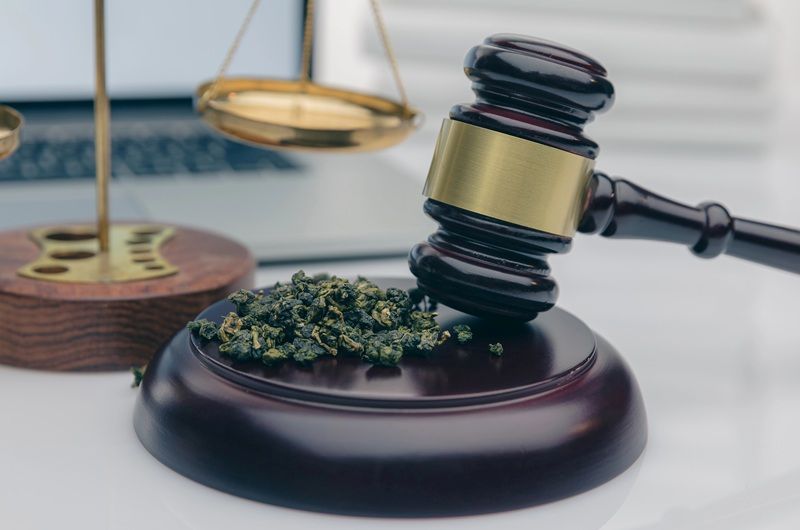Virginia law is strict when it comes to statutory rape cases. Many people assume that if they genuinely believed their partner was of legal age, they have a defense. Unfortunately, that is not the case in Virginia. The law takes a strict stance on protecting minors, making intent or knowledge about a minor’s age irrelevant.
This can be surprising for those who had no malicious intent and believed they were engaging in a lawful relationship. However, the law is designed to remove any gray areas, ensuring minors are shielded from any form of exploitation. Even if the minor presented themselves as an adult, the legal consequences remain the same.
This article explains why mistaken age is not a defense, outlines statutory rape laws in Virginia, and explores the potential consequences of a conviction. It also discusses the role of consent and how Fairfax County Criminal Attorneys can help defend against these serious charges.

Understanding Statutory Rape Laws In Virginia
Statutory rape laws in Virginia are based on one clear principle: minors cannot legally consent to sexual activity. The age of consent in Virginia is 18, meaning that any sexual activity with someone under this age is illegal. Even if the minor voluntarily engages in the act, the law still considers it a crime.
This strict approach is meant to protect young individuals from exploitation or manipulation by older individuals. The law assumes that minors lack the maturity to make informed decisions regarding sexual relationships. Because of this, an adult engaging in sexual activity with a minor can face severe consequences, regardless of intent.
Legal Classifications & Penalties
Virginia classifies statutory rape offenses based on the age of the minor involved. These classifications determine the severity of charges and penalties. The younger the minor, the harsher the punishment.
- Under 13 Years Old. Engaging in sexual activity with a child under 13 is a serious felony. Convictions can lead to decades in prison.
- Ages 13 to 15. Sexual activity with a minor in this range is also a felony but carries slightly lesser penalties.
- Ages 15 to 17. Though still illegal, some cases involving older minors may result in misdemeanor charges.
Understanding these classifications is critical for those facing charges. The consequences vary but always involve significant legal risks. It’s important to explore why some believe mistaken age should be a defense and why Virginia law disagrees.
The Concept Of Mistaken Age In Legal Context
The mistaken age defense argues that the accused genuinely believed the minor was of legal age. In other words, if an adult reasonably thought their partner was 18 or older, they might claim they lacked criminal intent. Some people assume that proving this belief can lead to a dismissal of charges.
However, Virginia law does not allow this defense under any circumstance. The strict nature of statutory rape laws means that whether an adult was deceived or misled is irrelevant. The law prioritizes protecting minors over the accused’s understanding of the situation.
Application In Other Jurisdictions
Some states allow a mistaken age defense under limited conditions. In those jurisdictions, an accused person must prove they made reasonable efforts to confirm their partner’s age. This could include checking identification or relying on official records.
Even in states where this defense exists, it is difficult to prove. The courts often place the burden on the accused to show they took reasonable precautions. However, Virginia has completely removed this possibility, reinforcing its strict stance on statutory rape cases.
Now that we understand the concept of mistaken age, here’s why Virginia explicitly rejects it as a defense.
Why Mistaken Age Is Not A Defense In Virginia
Facing a statutory rape charge can be overwhelming, especially when there was no intent to break the law. Many people assume that if they genuinely believed their partner was of legal age, they should not be held responsible. However, Virginia law takes a strict stance on this issue and does not allow mistaken age as a defense. Even if the minor lied, used a fake ID, or otherwise misrepresented their age, the accused can still be convicted.
This may seem unfair to those who had no ill intentions, but the law is designed to protect minors at all costs. Lawmakers and courts prioritize the safety of young individuals over an adult’s perception of their age. By making statutory rape a strict liability offense, Virginia removes any argument based on misunderstanding or deception. This section explores why the law takes this approach and why courts consistently reject the mistaken age defense.
Strict Liability Nature Of Statutory Rape Laws
Virginia law classifies statutory rape as a strict liability offense, meaning that intent or knowledge is irrelevant. In most criminal cases, the prosecution must prove that the accused knowingly committed an illegal act. However, with statutory rape, engaging in sexual activity with a minor is enough for a conviction, regardless of what the accused believed.
This approach simplifies prosecution and removes any ambiguity in court proceedings. Instead of debating whether an adult reasonably believed a minor was of legal age, the law focuses solely on the fact that the act occurred. This prevents individuals from using deception or ignorance as a legal loophole to escape responsibility.
Strict liability laws also serve as a deterrent, discouraging adults from engaging in relationships where age might be questionable. The burden is entirely on the adult to verify their partner’s legal status before any sexual activity occurs. If there is any doubt, the safest choice is to avoid the relationship altogether.
Legislative Intent To Protect Minors
Virginia lawmakers created these laws with the primary goal of protecting minors from exploitation. The state recognizes that young individuals may lack the maturity and judgment to make informed decisions about sexual relationships. By eliminating the mistaken age defense, Virginia ensures that minors are not placed in vulnerable situations where they could be taken advantage of.
This legal stance also removes any opportunity for predators to manipulate minors and later claim they were misled. Even in cases where the relationship seemed consensual, the law assumes that an adult has the responsibility to ensure their partner is legally capable of consenting. The strict liability framework reinforces the idea that minors need absolute legal protection.
Additionally, the law sends a clear message: adults must always exercise caution before engaging in any relationship where age is uncertain. No matter how mature a minor appears or acts, the legal consequences remain the same. This rigid stance reflects Virginia’s firm commitment to protecting young individuals from potential harm.
Judicial Precedents In Virginia
Virginia courts have consistently upheld the exclusion of mistaken age as a defense. Judges follow the law’s strict liability principle, ensuring that the protection of minors takes precedence over the accused’s perception of the situation. Once the prosecution proves that sexual activity occurred with someone under 18, a conviction is likely.
The courts reinforce that the intent of the accused is irrelevant, meaning that deception by the minor does not change the legal outcome. This has been reaffirmed in numerous cases where defendants claimed they were misled, yet the courts ruled against them. By maintaining this stance, Virginia aligns itself with other states that take a similar zero-tolerance approach.
For individuals facing statutory rape charges, this means that arguing ignorance or deception will not help their case. Instead, the focus should be on building a strong legal defense with the help of an experienced attorney. Understanding that mistaken age is not a defense is the first step in preparing for the legal challenges ahead.
Potential Consequences Of A Statutory Rape Conviction

Convictions for statutory rape come with severe legal repercussions. The specific penalties depend on the ages involved and whether force or coercion was present. Sentences range from several years to life in prison.
Fines and probation are also common, especially for cases involving older minors. However, even lesser charges result in a permanent criminal record. A conviction can follow a person for the rest of their life, affecting employment and personal opportunities.
Sex Offender Registration
Many statutory rape convictions require mandatory sex offender registration. This means the accused must regularly report their location, employment, and residence. Registration places severe restrictions on where individuals can live and work.
The stigma of being on the sex offender registry can be overwhelming. It often leads to social isolation, job loss, and difficulty securing housing. For many, this punishment lasts long after any prison sentence is served.
Impact On Personal & Professional Life
Beyond the legal penalties, a conviction carries a heavy social burden. Relationships suffer, and career opportunities may disappear. Many employers refuse to hire individuals with sex-related offenses.
The impact extends to personal freedoms, as those convicted may face restrictions on travel and access to certain spaces. The lasting consequences highlight why securing strong legal representation is so important. The next section explains how The Irving Law Firm can help.
Fairfax County Criminal Attorneys Offers Skilled Representation
Fairfax County Criminal Attorneys has extensive experience handling statutory rape cases in Virginia. Our legal team understands the high stakes involved and works tirelessly to protect clients. We approach every case with diligence, ensuring that all legal options are explored.
Every case is unique, and we tailor defense strategies to the client’s specific situation. Whether challenging evidence, negotiating reduced charges, or building a strong courtroom defense, the firm focuses on achieving the best possible outcome.
In addition, our legal team fights aggressively to uphold clients’ rights and minimize the impact of these charges. When the stakes are high, having skilled legal representation can make all the difference. Contact us today so we can help you put up a solid defense.
Virginia law does not allow mistaken age as a defense in statutory rape cases. The state prioritizes protecting minors, meaning that intent or knowledge is irrelevant. The consequences of a conviction are severe, including jail time, sex offender registration, and long-term damage to personal and professional life.
For those facing statutory rape charges, securing an experienced attorney is critical. Fairfax County Criminal Attorneys provides dedicated legal support to navigate these serious accusations.




